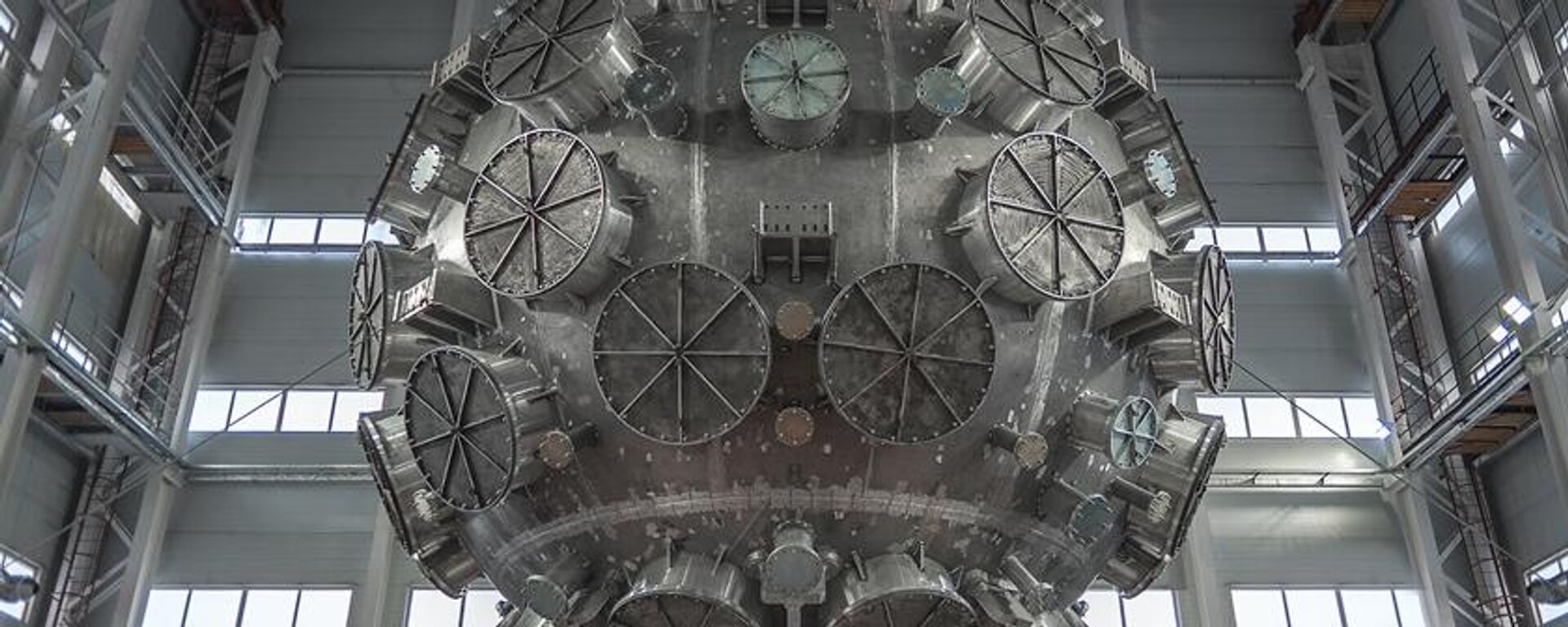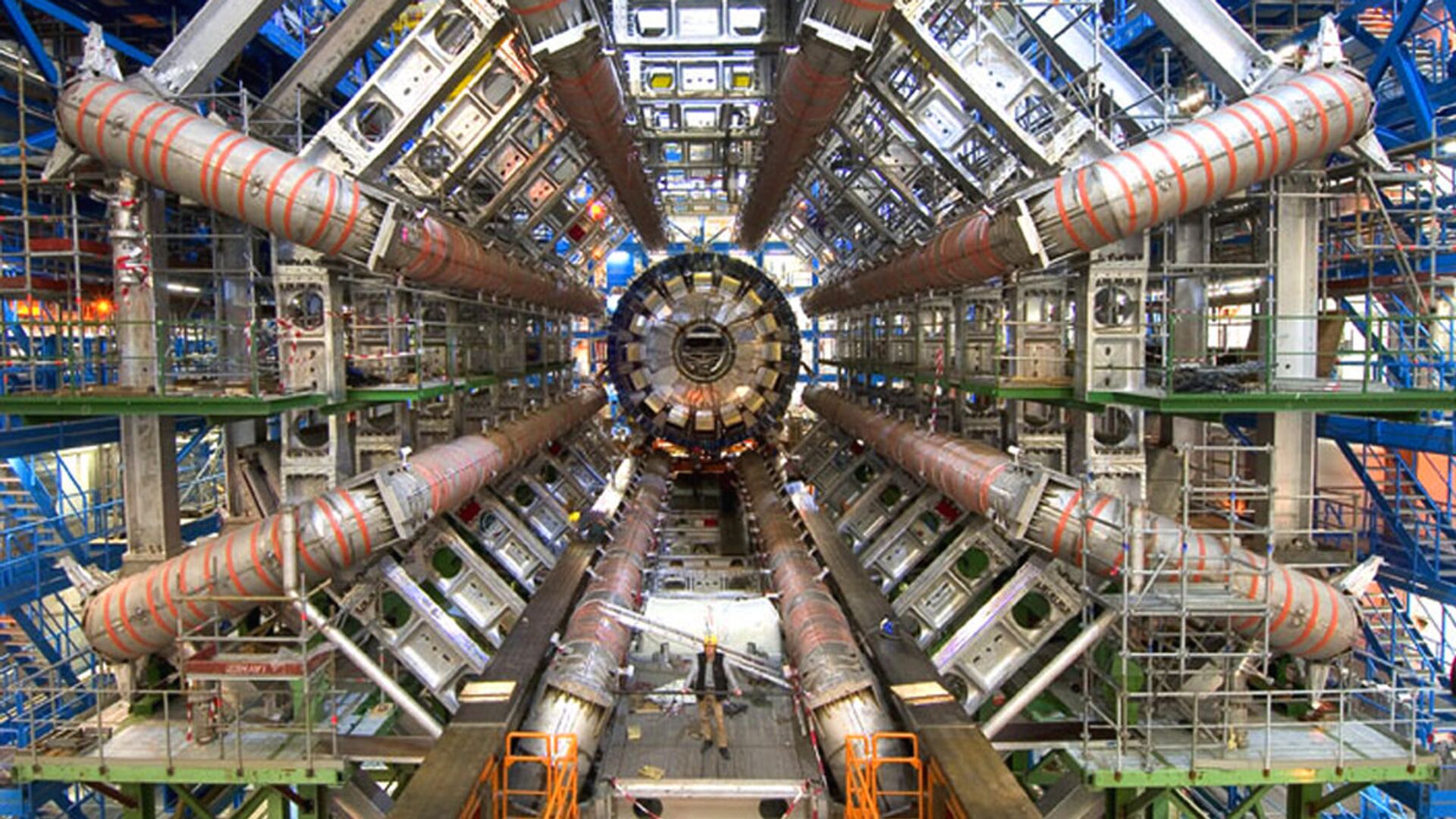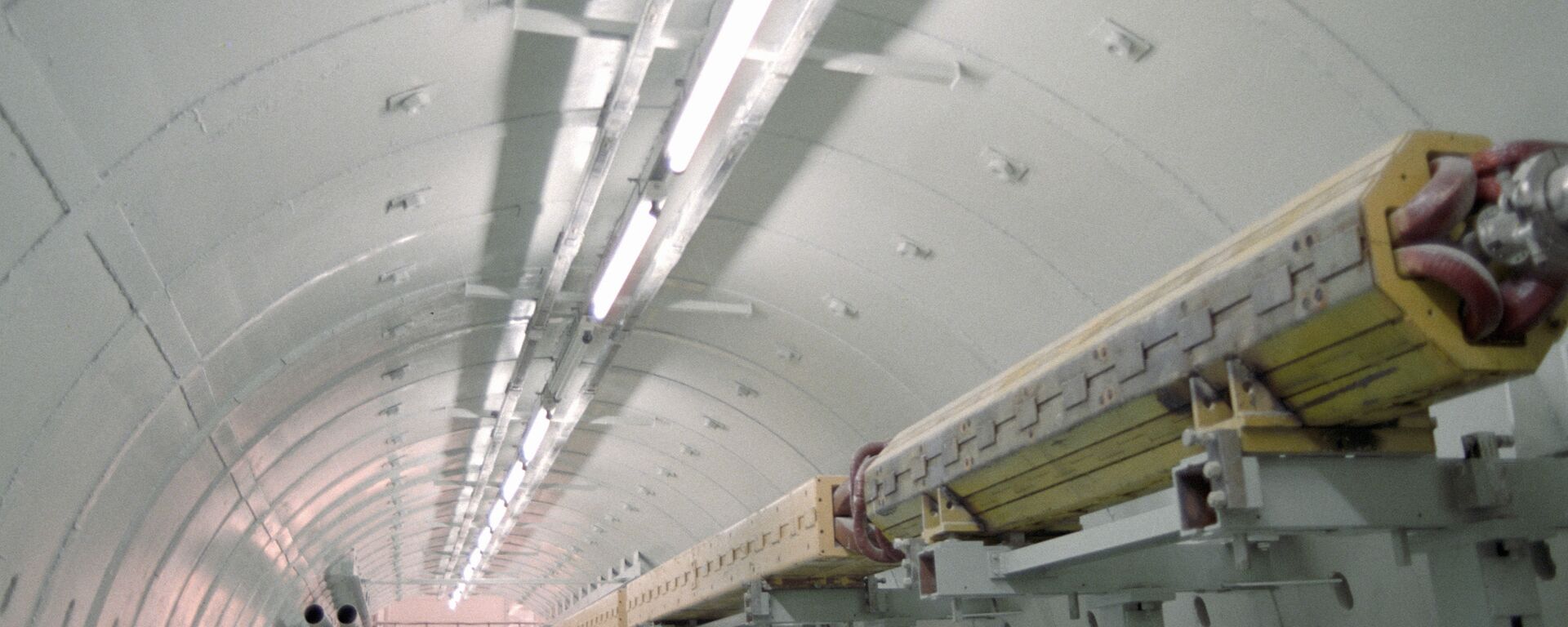https://sputnikglobe.com/20240922/cerns-politicized-plan-to-ban-russian-scientists-threatens-west-with-scientific-slum-status-1120250876.html
CERN’s ‘Politicized’ Plan to Ban Russian Scientists Threatens West With ‘Scientific Slum’ Status
CERN’s ‘Politicized’ Plan to Ban Russian Scientists Threatens West With ‘Scientific Slum’ Status
Sputnik International
The European Organization for Nuclear Research (French acronym CERN) plans to expel close to 500 Russian scientists from its labs, including the Large Hadron Collider particle accelerator, effective December 1. Russian nuclear energy expert Alexei Anpilogov explains why the "politicized" move threatens to turn the West into a "scientific slum."
2024-09-22T19:00+0000
2024-09-22T19:00+0000
2024-09-22T19:18+0000
analysis
russia
science & tech
france
cern
large hadron collider
https://cdn1.img.sputnikglobe.com/img/103764/72/1037647242_0:63:1200:738_1920x0_80_0_0_7560feacd5f382d779b9de9127b16c45.jpg
In 2008, to great fanfare and jubilation, CERN opened the 27 km-long Large Hadron Collider (LHC) – the world’s largest and most powerful particle accelerator, on the French-Swiss border. Russian scientists, who had been working on their own massive particle accelerator project in the 1980s prior to the Soviet Union's dissolution, played an active and critical role in the LHC's creation. CERN signed a cooperation agreement with Russia's Institute of High Energy Physics in 1993, and up to 700 Russian specialists, plus many more from other post-Soviet republics, took part in the $4.75 billion European scientific megaproject's construction.A decade-and-a-half after the LHC's launch, CERN intends to formally end cooperation with Russia, to ban Russian scientists from the organization's sites and demand that they hand in their Swiss and French residency permits, unless they start working for scientific institutions outside Russia.CERN's "absolutely irresponsible" and "politicized" decision is nothing short of an attempt to "erase" Russia from international science, and a move that will inevitably backfire, nuclear energy expert and political scientist Alexei Anpilogov told Sputnik.A large portion of the infrastructure involved in the LHC’s construction was made possible thanks to ideas contributed by scientists from Russia, who have long played a leading role in elementary particle physics, quantum physics and astrophysics, Anpilogov said.Today, these fields are giving birth “to fundamental technologies of big science that will be demand, 20, 50, 100 years from now.” If Russia’s ability to contribute to world science is diminished, “this will stop progress, or at least slow it down quite significantly,” he said.At the same time, Western countries’ "extraordinary" attempt to wall themselves off from Russian science, a process exemplified by CERN's decision, is being taken to levels unseen even during the Cold War, and threaten to boomerang against them in a dramatic way.Anpilogov expects Russia and the countries of developing world, who make up the global majority and are playing an increasingly important role in world science, to forge new megaprojects based on the principle of the non-ideologization and non-politicization of science.Kovalchuk pointed out an array of Russian scientific megaprojects, from the PIK research reactor in Gatchina for the study of neutron radiation and microphysics, to the Sila synchrotron laser being developed in Protvino outside Moscow, the SKIF 4th generation synchrotron radiation facility in Koltsovo, Siberia, the RIF synchrotron on Russky Island in the Russian Far East, the revamped X-Ray lithography synchrotron in Zelenograd, Moscow and the Kurchatov Institute’s Tokamak nuclear fusion research reactor.As for CERN’s LHC, and other European scientific megaprojects, including Germany’s European X-Ray Free-Electron Laser Facility and France’s ITER nuclear fusion research and engineering project, all of these complex installations “are based on the ideas of Soviet-Russian science,” the official stressed, with Russia being both an intellectual and financial donor to their creation.
https://sputnikglobe.com/20200809/how-the-soviets-nearly-built-their-own-massive-particle-accelerator-15-years-before-cern-1080113676.html
https://sputnikglobe.com/20240523/russia-open-to-nuclear-tug-powered-space-mission-with-brics-partners---roscosmos-1118598103.html
https://sputnikglobe.com/20240813/most-powerful-laser-installation-in-the-world-meet-russias-ufl-2m-tsar-laser-1119751816.html
russia
france
Sputnik International
feedback@sputniknews.com
+74956456601
MIA „Rossiya Segodnya“
2024
News
en_EN
Sputnik International
feedback@sputniknews.com
+74956456601
MIA „Rossiya Segodnya“
Sputnik International
feedback@sputniknews.com
+74956456601
MIA „Rossiya Segodnya“
why is cern banning russian scientists, what will happen if cern bans russian scientists, what will happen when russian scientists aren't allowed to use large hadron collider
why is cern banning russian scientists, what will happen if cern bans russian scientists, what will happen when russian scientists aren't allowed to use large hadron collider
CERN’s ‘Politicized’ Plan to Ban Russian Scientists Threatens West With ‘Scientific Slum’ Status
19:00 GMT 22.09.2024 (Updated: 19:18 GMT 22.09.2024) The European Organization for Nuclear Research (French acronym CERN) plans to bar close to 500 Russian scientists from its labs, including the Large Hadron Collider particle accelerator, effective December 1. Russian nuclear energy expert Alexei Anpilogov explains why the "politicized" move threatens to turn the West into a "scientific slum."
In 2008, to great fanfare and jubilation, CERN opened the 27 km-long Large Hadron Collider (LHC) – the world’s largest and most powerful particle accelerator, on the French-Swiss border.
Russian scientists, who had been
working on their own massive particle accelerator project in the 1980s prior to the Soviet Union's dissolution, played an active and critical role in the LHC's creation. CERN signed a cooperation agreement with Russia's Institute of High Energy Physics in 1993, and up to 700 Russian specialists, plus many more from other post-Soviet republics, took part in the $4.75 billion European scientific megaproject's construction.
A decade-and-a-half after the LHC's launch, CERN intends to formally end cooperation with Russia, to
ban Russian scientists from the organization's sites and demand that they hand in their Swiss and French residency permits, unless they start working for scientific institutions outside Russia.
CERN's "absolutely irresponsible" and "politicized" decision is nothing short of an attempt to "erase" Russia from international science, and a move that will inevitably backfire, nuclear energy expert and political scientist Alexei Anpilogov told Sputnik.
The decision will result in a situation where “all countries will be extremely cautious about science megaprojects, and engaging in international scientific cooperation in general,” knowing that they could be booted at any time for “absolutely political reasons,” the observer pointed out.
A large portion of the infrastructure involved in the LHC’s construction was made possible thanks to ideas contributed by scientists from Russia, who have long played a leading role in elementary particle physics, quantum physics and astrophysics, Anpilogov said.
Today, these fields are giving birth “to fundamental technologies of big science that will be demand, 20, 50, 100 years from now.” If Russia’s ability to contribute to world science is diminished, “this will stop progress, or at least slow it down quite significantly,” he said.
At the same time, Western countries’ "extraordinary" attempt to wall themselves off from Russian science, a process exemplified by CERN's decision, is being taken to levels unseen even during the Cold War, and threaten to boomerang against them in a dramatic way.
In this divided world, Russia will be able to “jointly implement ambitious and large-scale megaprojects," with countries in the Global South, "without Western scientists’ participation. And in such a scenario, the 'wall' now being built around Russia may turn out to be a wall around the European Union and the West in general, where scientists could find themselves in a scientific slum from which it may prove quite difficult to escape,” Anpilogov pointed out.
Anpilogov expects Russia and the countries of developing world, who make up the global majority and are playing an increasingly important role in world science, to forge new megaprojects based on the principle of the non-ideologization and non-politicization of science.
Mikhail Kovalchuk, head of the Kurchatov Institute, Russia’s leading nuclear energy R&D institution, told Russian media on Saturday that as “difficult” it will be to lose the scientific connections built up with Western countries over the decades, “for Russian science, this is a positive development, since the megaprojects being developed in Russia today will require many scientists and engineers.”
Kovalchuk pointed out an array of Russian scientific megaprojects, from the PIK research reactor in Gatchina for the study of neutron radiation and microphysics, to the Sila synchrotron laser being developed in Protvino outside Moscow, the SKIF 4th generation synchrotron radiation facility in Koltsovo, Siberia, the RIF synchrotron on Russky Island in the Russian Far East, the revamped X-Ray lithography synchrotron in Zelenograd, Moscow and the Kurchatov Institute’s Tokamak nuclear fusion research reactor.

13 August 2024, 14:11 GMT
“In other words, over the next five to seven years, we will have the most advanced, most modern, most powerful research infrastructure in the world,” Kovalchuk said.
As for CERN’s LHC, and other European scientific megaprojects, including Germany’s European X-Ray Free-Electron Laser Facility and France’s ITER nuclear fusion research and engineering project, all of these complex installations “are based on the ideas of Soviet-Russian science,” the official stressed, with Russia being both an intellectual and financial donor to their creation.





